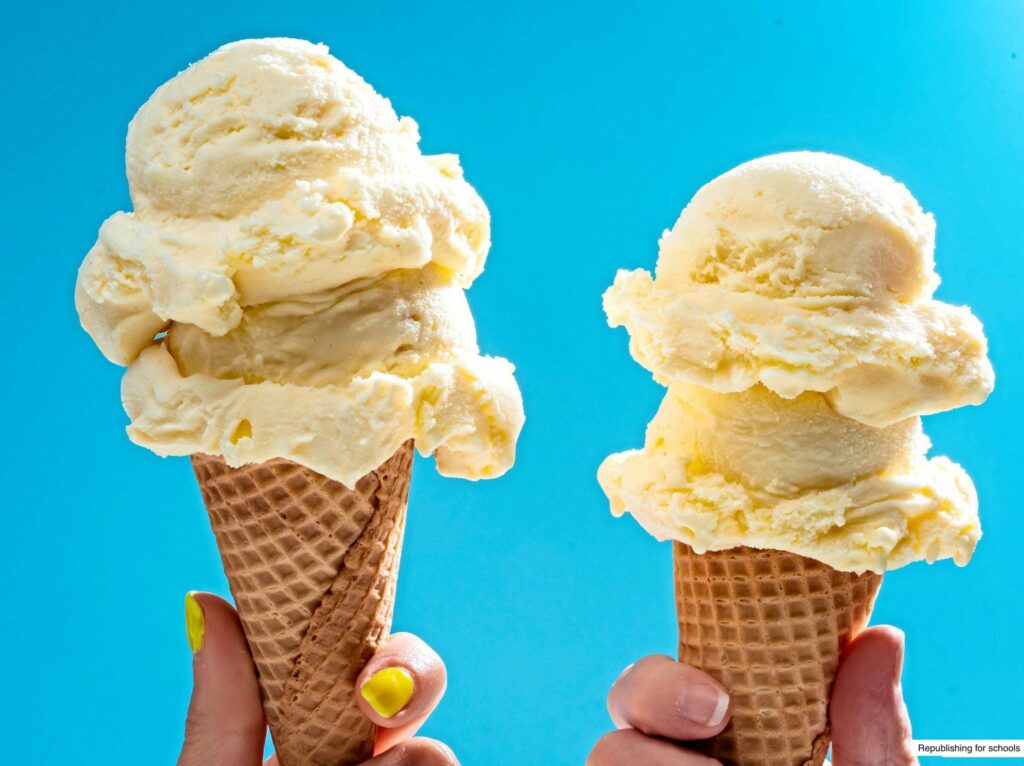Can we trust science? Several studies over the last 20 years have suggested that ice-cream could prevent diabetes — but until now the findings have been largely suppressed.
Proof of the pudding: ice-cream is healthy!
 Sundae best: New Zealanders eat the most ice-cream per head — 28 litres a year on average.
Sundae best: New Zealanders eat the most ice-cream per head — 28 litres a year on average. Glossary
Scenario - An imaginary situation. The word was originally Italian and referred to the plot of a stage drama.
Thesis - A long essay involving personal research.
Diabetes - A medical condition causing there to be too much sugar in the blood.
Insulin - A hormone which controls blood sugar levels and helps your body to turn food into energy.
Adamant - Sure, certain.
Epidemiologist - A person who studies diseases and how they spread between people.
